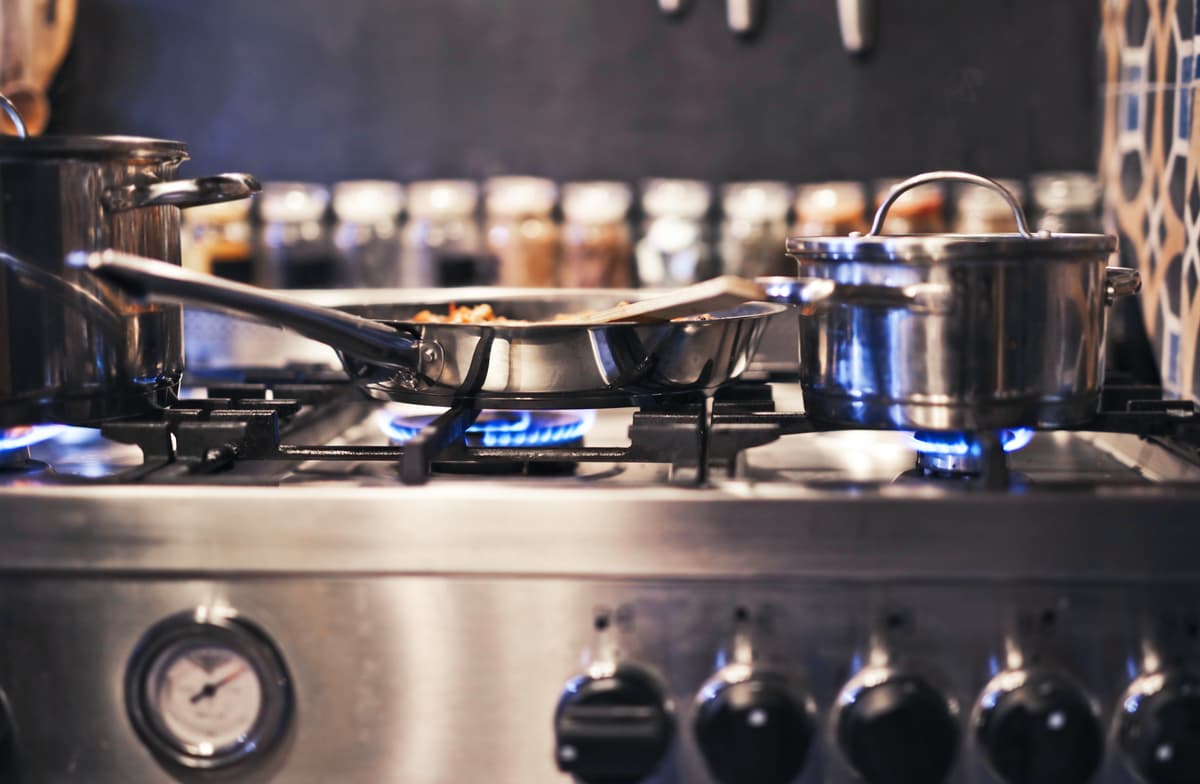Attention Aspiring Chefs: The Government Is Coming for Your Gas Stoves
Gas companies have mounted a counter-offensive, reminding Americans what most cooking enthusiasts already know: that cooking over gas is cleaner, cheaper, more efficient, and more precise than using electric coils.

For some time now, environmentalists and their allies in state and local government have been ratcheting up their efforts to ban the use of gas stoves in American homes in the name of fighting climate change. Now, the federal government is stepping into the fray by claiming that those stoves are a health hazard and need to be banned in the interest of consumer safety.
According to a Bloomberg report, the U.S. Consumer Product Safety Commission is contemplating a complete ban on natural gas-powered cooktops in American homes because several recent studies suggest that they emit harmful levels of pollutants that can cause respiratory problems or other health issues. An agency commissioner, Richard Trumka, called gas stoves a “hidden hazard” and said that “products that can’t be made safe can be banned.”
Gas stoves, which some 40 percent of American households rely on, are already under fire from climate alarmists who believe they contribute to global warming. New York is one of as many as 100 cities across the country that have restricted gas hookups in new residential buildings following pressure from the climate lobby, and the California Air Resources Board recently voted to ban the sale of natural gas-fired furnaces and water heaters by 2030.
Activists in New York are pressuring the state’s governor, Kathy Hochul, to enact a statewide ban similar to New York City’s. A Brooklyn-based member of the state assembly, Emily Gallagher, is leading the charge. “Every new building that is built with gas hookups is making us poorer, sicker, and closer to climate catastrophe,” Ms. Gallagher said at a December rally promoting the ban.
A number of Republican-led states have moved in the opposite direction in the name of “energy choice.” At least 19 states have passed legislation prohibiting local jurisdictions from banning gas hookups, and four more have such legislation pending.
Lobbying by pro-gas energy companies has ramped up almost as quickly as the protests against it. Gas utilities have mounted ad campaigns, hired robo-calling companies, and organized rallies to remind Americans and their legislators what most cooking enthusiasts already know: that cooking over gas is cleaner, more efficient, and more precise than cooking over superheated electric coils. They also remind customers that gas-powered appliances such as hot water heaters, furnaces, and stovetops work even when the electricity fails.
The action by the Consumer Product Safety Commission is less about climate politics and more about public health, according to the agency. Multiple recent studies have concluded that the particulates released by gas stoves indoors may be hazardous. One study suggested that the appliances may exacerbate asthma in children, according to the climate change activists at RMI.
The commission will likely begin seeking public comments on the potential ban in the coming months. Other measures being contemplated reportedly include setting bans on emissions from gas-powered stovetops. A group of Democrats in Congress suggested last month that the agency also consider warning labels on the appliances or requiring range hoods that absorb and filter any contaminants.
In a December letter to head of the commission, Alexander Hoehn-Saric, the members suggested that Black, Latino, and low-income people are most vulnerable to the impact of gas stoves.
“The CPSC has broad authority under the Consumer Product Safety Act to regulate consumer products that pose an unreasonable risk of injury,” the letter, which was signed by Senator Booker of New Jersey and 19 other members of Congress, said. “We urge the Commission to protect consumers from these harmful emissions.”

